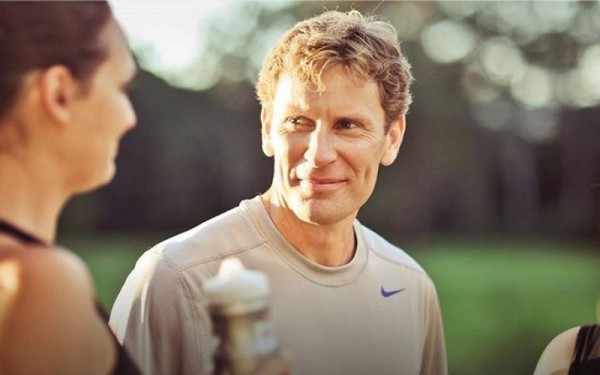
3 minutes with Dr Darren Morton
3 Minutes with Dr Darren Morton is part of a series of interviews “3 minutes with…” showcasing some of the outstanding presenters you will enjoy at Lifestyle Medicine 2017. These interviews are designed to delve deeper into what inspires our speakers about Lifestyle Medicine, their work and life in general.
Dr Darren Morton is a sought after speaker, having delivered hundreds of lifestyle-related presentations to corporate, education and community groups throughout Australia and internationally. He is a key developer of (and presenter in) the Complete Health Improvement Program (CHIP), which is a leading Lifestyle Medicine intervention now used in over 10 countries.
Having authored numerous academic and popular publications centred around optimising the effectiveness of Lifestyle Medicine interventions, we are thrilled to have him on board.
Here’s what the lead researcher and Course Convenor for Postgraduate Studies in Lifestyle Medicine within the Lifestyle Research Centre at Avondale College of Higher Education had to say:
Your passion for Lifestyle Medicine is very clear. What drew you to this area in the first place? What keeps you there and enthused?
A little while ago I found a personal mission statement that I had written in high school for a class assignment. It read, “to work in the health and wellbeing space in a position that is academically challenging and offers the opportunity to have an impact upon the lives of others”. As I read it, all these years later (well not that many years), I realise that it still sums up what I want to do with my life. Lifestyle Medicine to me is a perfect fit. I am fascinated by the evidence-base for Lifestyle Medicine the ability of Lifestyle Medicine to bring people back to life keeps me enthused, passionate and excited.
You are a leader in educating practitioners in Lifestyle Medicine – how do you feel the area is evolving?
I am certain that Lifestyle Medicine is the way of the future of health care – it has to be because the current disease care paradigm is not sustainable. Education will play an important role in making this a reality. To be honest, I am surprised that there are not more universities offering studies in Lifestyle Medicine and that needs to change. As the Course Convenor for the postgraduate courses in Lifestyle Medicine at Avondale, one thing that is important to me is that Lifestyle Medicine courses are available to people from many different disciplines. In the United States the Lifestyle Medicine space is dominated by physicians but I believe that many other disciplines, even some non-health disciplines such as teaching, have a role to play in advancing the cause of Lifestyle Medicine. I certainly enjoy interacting with people from all walks of life in our courses at Avondale.
If you could address only one of the barriers facing a shift towards preventative health, what would it be?
As the saying goes, “grow where you are planted”, and so for me the one thing that I can do (and am trying to do) is break down the barrier of ignorance. It is incredible how much ignorance exists regarding Lifestyle Medicine and what it can do. I originally came from a teaching background and so I know that education can make a difference. For me, I thoroughly enjoy being involved in higher education but also education at a community level through programs that I helped develop such the Complete Health Improvement Program (CHIP), and more recently, the Lift Project that uses principles from Lifestyle Medicine for addressing mental health and emotional wellbeing. The message will get out there, but we just need more capable, caring and passionate change agents to help. It is my dream that people at both the top (ie. policy makers, etc) and the bottom (ie. the general public) will become more aware of the efficacy of Lifestyle Medicine so that we can see both a top-down and bottom-up push for Lifestyle Medicine to become a frontline component of health care.
You have three hours of completely uninterrupted time; how do you spend it?
Outside doing something active. Nature calls me—hang gliding, kitesurfing, running, mountain biking, kayaking. That’s my happy place and it aligns perfectly with Lifestyle Medicine.
Find out more about Lifestyle Medicine 2017 here.



